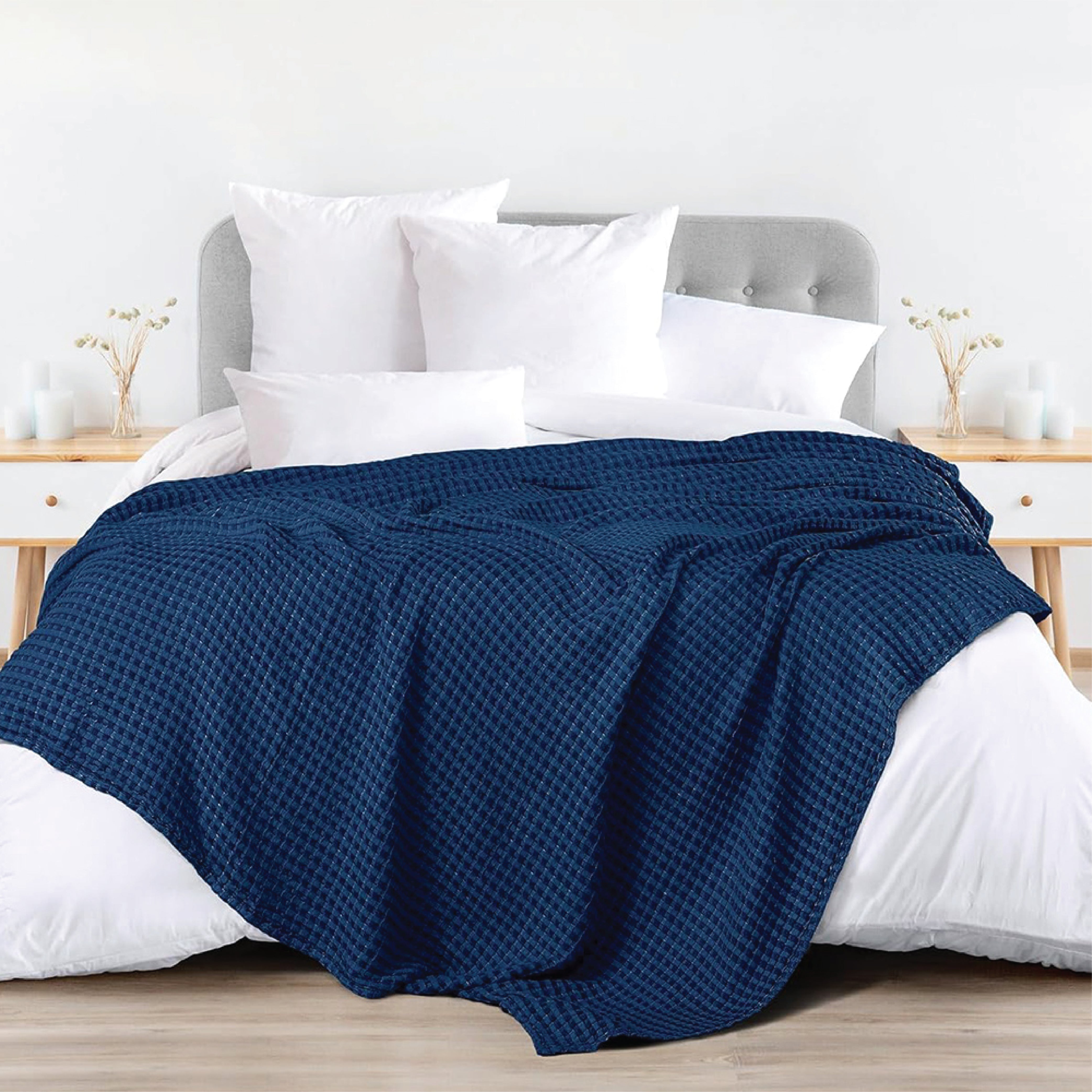Cotton Dohar for Summer: The Perfect Blend of Comfort and Style

Introduction
A cotton dohar is a traditional Indian summer blanket that combines comfort, style, and functionality. Made from lightweight cotton, these dohars are ideal for the hot and humid months, offering a breathable and soft covering that enhances the quality of sleep. Their simple elegance and cultural significance make them a popular choice in modern households.
Historical Background
Dohars have a rich history in India, where they have been used for centuries. Originating in the royal households of Rajasthan, dohars were traditionally handcrafted by skilled artisans. They were made using fine muslin cotton, which was known for its softness and lightweight properties. Over time, the use of dohars spread across the country, becoming a staple in many Indian homes.
Material and Construction
The primary material used in a dohar is cotton, prized for its breathability, softness, and natural cooling properties. Typically, a dohar consists of three layers of cotton fabric: two outer layers of fine cotton voile and an inner layer of flannel. This combination ensures that the dohar is light yet provides adequate warmth for a comfortable sleep. The edges are often finished with intricate piping or lace, adding a touch of elegance.
Benefits of Cotton Dohars
- Breathability: Cotton is a highly breathable fabric, allowing air to circulate and preventing the accumulation of heat. This is particularly beneficial in summer, as it keeps the body cool and comfortable.
- Softness: The softness of cotton makes dohars gentle on the skin, reducing the risk of irritation or allergies. This is especially important for those with sensitive skin or children.
- Moisture Absorption: Cotton has excellent moisture-wicking properties, which helps in absorbing sweat and keeping the body dry. This feature is crucial during hot summer nights when sweating can be a common issue.
- Durability: High-quality cotton dohars are durable and can withstand regular washing without losing their softness or shape. This makes them a long-lasting addition to any home.
- Versatility: Dohars can be used in various ways, not just as a bed covering. They can serve as light throws for sofas, picnic blankets, or even as an extra layer of warmth during slightly cooler nights.
Design and Aesthetics
Cotton dohars come in a wide range of designs, catering to different tastes and preferences. Traditional designs often feature intricate block prints, hand-embroidered patterns, or vibrant colors that reflect India's rich cultural heritage. Modern designs may include minimalist patterns, pastel shades, or geometric prints, appealing to contemporary aesthetics.
- Traditional Designs: These dohars often feature motifs like paisleys, florals, and ethnic patterns. They are usually hand-block printed using natural dyes, ensuring each piece is unique.
- Modern Designs: For those who prefer a more contemporary look, dohars with abstract designs, subtle prints, or monochromatic color schemes are available. These designs can easily blend with modern interior decor.
- Customizable Options: Some manufacturers offer customization options, allowing customers to choose the fabric, design, and size according to their preferences. This ensures that the dohar perfectly matches the user’s needs and home decor.
Environmental Impact
Choosing a cotton dohar is also an environmentally friendly decision. Cotton is a natural, biodegradable fiber that has a lower environmental impact compared to synthetic materials. Moreover, many dohars are now made using organic cotton, which is grown without the use of harmful pesticides and chemicals. This not only benefits the environment but also ensures that the fabric is safe and non-toxic for users.
- Organic Cotton: Organic cotton is grown using sustainable farming practices that do not harm the environment. It reduces the carbon footprint and supports biodiversity.
- Eco-friendly Dyes: Many dohars are printed using natural dyes derived from plants, minerals, and other natural sources. These dyes are non-toxic and do not pollute water bodies, unlike synthetic dyes.
- Handcrafted Production: The traditional handcrafted production process of dohars consumes less energy and produces minimal waste compared to mass-produced textiles.
Care and Maintenance
Maintaining a cotton dohar is relatively simple, making it a practical choice for everyday use. Regular washing in cold water with a mild detergent is usually sufficient to keep the dohar clean and fresh. It is advisable to avoid using bleach or harsh chemicals, as these can damage the fabric and reduce its lifespan. Air drying is recommended to preserve the softness and quality of the cotton.
- Washing: Wash the dohar in cold water to prevent shrinkage and preserve the colors. Use a mild, eco-friendly detergent.
- Drying: Air drying is the best method to maintain the softness and durability of the cotton. If using a dryer, choose a low heat setting.
- Storage: Store the dohar in a cool, dry place when not in use. Avoid direct sunlight, as it can fade the colors over time.
Cultural Significance
In Indian culture, dohars hold a special place, often associated with comfort, hospitality, and familial warmth. They are commonly gifted during weddings, housewarming ceremonies, and other special occasions. The process of making dohars is also an important aspect of traditional craftsmanship, supporting local artisans and preserving age-old techniques.
- Gift Giving: Dohars are a popular choice for gifting, symbolizing warmth and care. They are often part of dowries and gifts during festivals.
- Artisan Support: Purchasing handcrafted dohars supports local artisans and helps preserve traditional crafts. It also promotes fair trade and ethical consumerism.
- Cultural Heritage: Dohars represent a blend of cultural heritage and modern utility, making them a cherished part of Indian households.
Conclusion
A cotton dohar is more than just a summer blanket; it is a blend of tradition, comfort, and sustainability. Its lightweight and breathable nature makes it perfect for hot climates, while its aesthetic appeal adds a touch of elegance to any room. By choosing a cotton dohar, one not only enjoys a good night's sleep but also supports environmentally friendly practices and traditional craftsmanship. Whether you prefer traditional designs or modern patterns, a cotton dohar is a versatile and valuable addition to your home.
